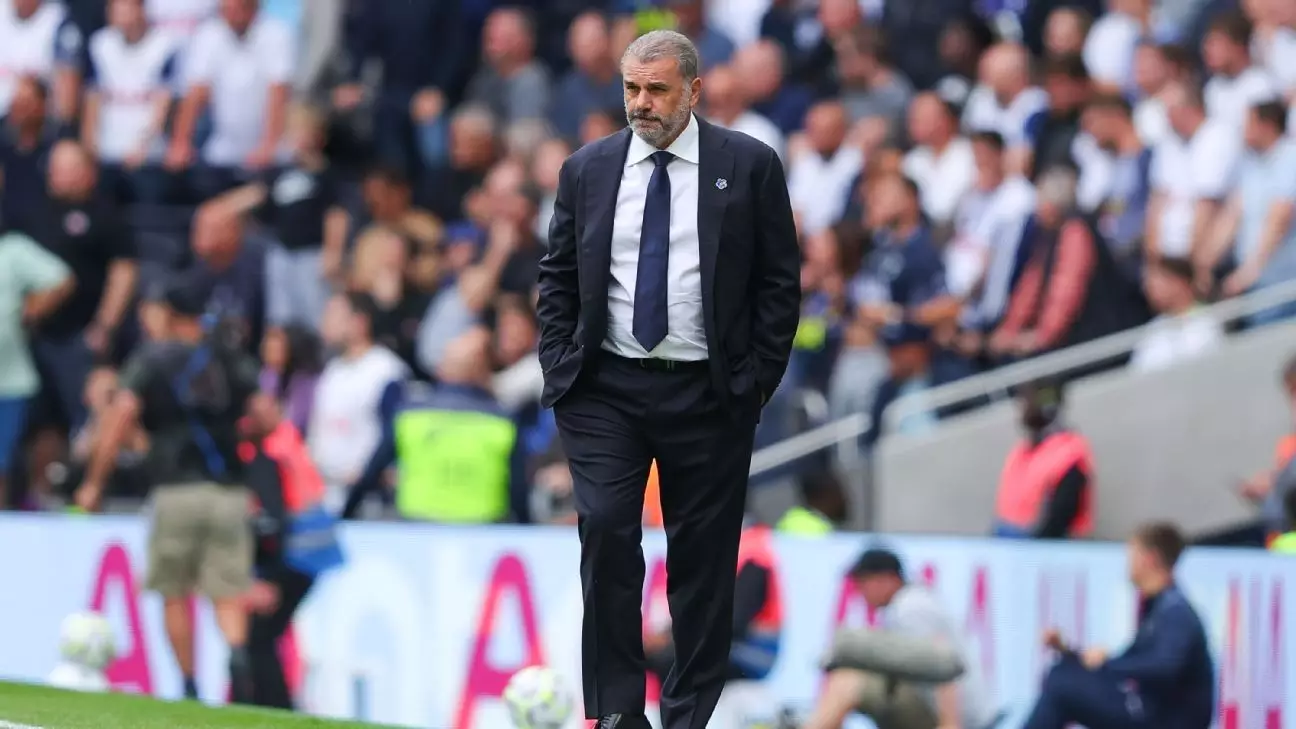Ange Postecoglou, the head coach of Tottenham Hotspur, stirred the pot in his recent comments about success in the second year of management. Following a disappointing loss to Arsenal in the North London derby, he remarked on his track record, stating that he “always wins things” in his second season. This claim, which reflects his achievements at clubs like Celtic, Yokohama F. Marinos, and Brisbane Roar, has been met with backlash from fans and pundits alike. The negative reactions to his bold assertion highlight the delicate relationship between aspirations and reality within football.
His comments, however, did not come without a backdrop of historical context; Spurs have been without a trophy since 2008, leading many to question the relevance of his boast. Postecoglou’s statement is rooted in his personal history of success, yet it raises an important conversation about expectations in a club rich in history yet devoid of silverware for over a decade.
The fervent reactions to Postecoglou’s assertion can be viewed through multiple lenses. Paul Merson, a former Arsenal player and current pundit, humorously suggested that he had a better chance of winning a reality TV show than Spurs did of securing a trophy this season. This kind of critique reflects not only on the team’s current form but also on the frustration that has been brewing among supporters. Many fans find it difficult to reconcile a manager’s confidence with the stark reality of their team’s performances.
Postecoglou’s confusion over the backlash may stem from a deeper misunderstanding of the emotional investment fans have in their club. For a club like Spurs, where expectations are intricately tied to historical success and a passionate fanbase, any statement that appears self-aggrandizing can provoke a strong response. Rather than a reflection of arrogance, his assertion could be interpreted as ambition—a call for belief in a turnaround that many supporters desperately long for.
Success in football often hinges on a balance between optimism and realism. Postecoglou’s assertion that “I always win things in my second year” may simply reflect his commitment to building a winning culture, one that can revive the ambitions of a club that has faltered in its quest for glory. He argues that acknowledging past successes should be celebrated rather than dismissed.
While confidence in a team’s prospects is crucial, it must be coupled with tangible progress on the pitch. As the narrative unfolds, Postecoglou’s vision for Tottenham will be tested not just by his words but by the responses of his players and their ability to execute on the field.
As Spurs prepare for upcoming fixtures, including the Carabao Cup match against Coventry, the challenges facing Postecoglou and his squad will be multifaceted. While some players, such as Yves Bissouma, will be absent, the opportunity for younger talents to emerge remains a silver lining.
Ultimately, Postecoglou’s confidence may serve to galvanize his troops, but for it to resonate with the fanbase, results are essential. The question remains: can he translate bold ambitions into matched performances? Only time will tell if Spurs can finally break their trophy drought and achieve the success that both Postecoglou and their legions of supporters yearn for.

